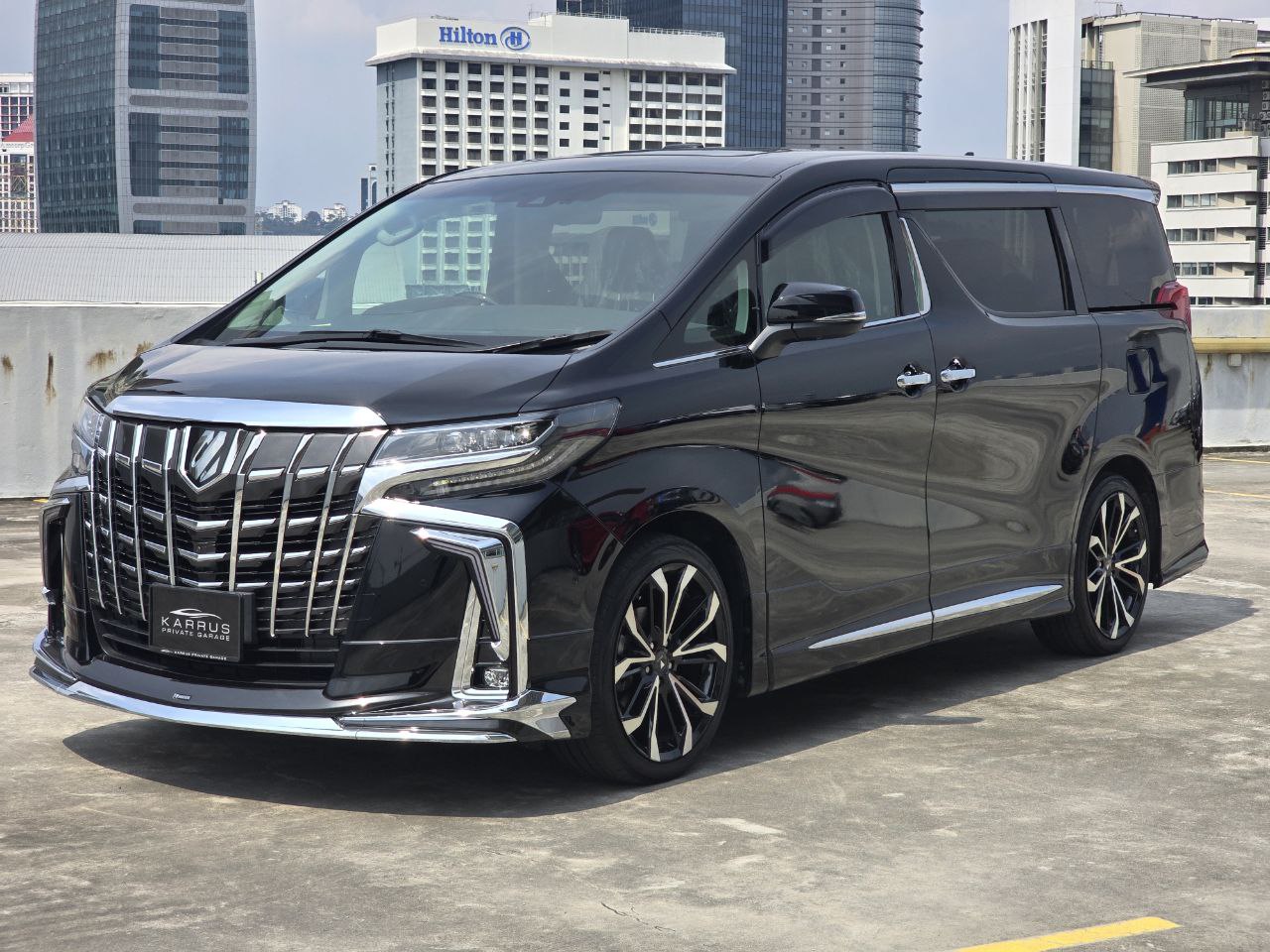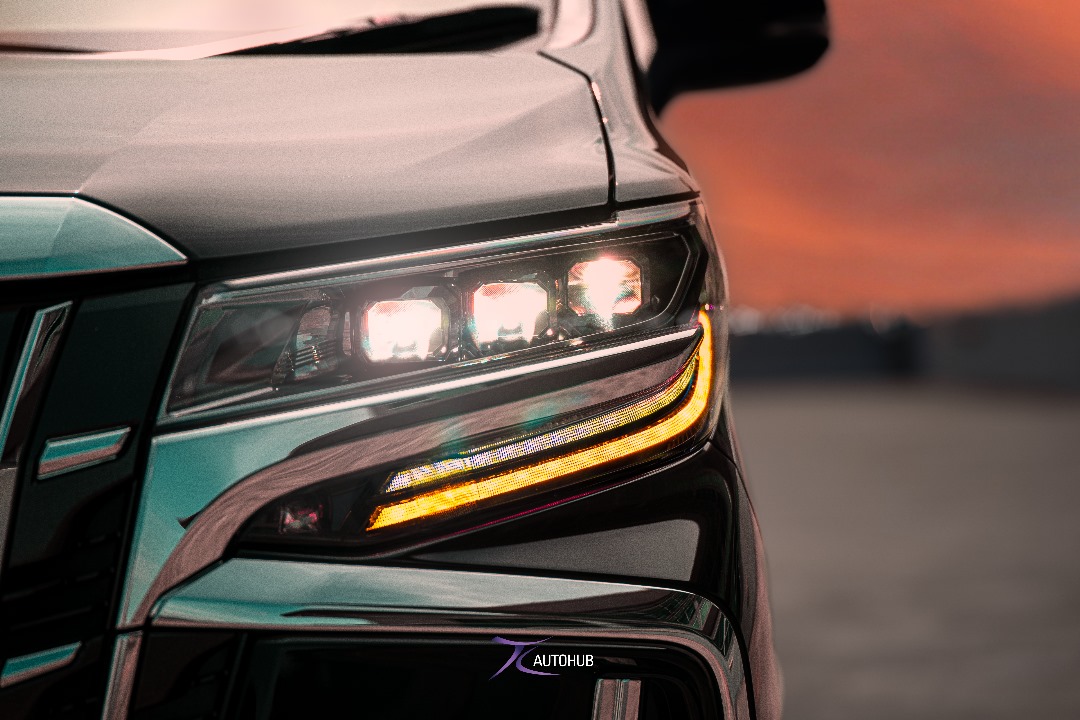
Alphard SC: Why It’s a Popular Choice in Ma ..
Aug 09 - 2025

07
Nov
Choosing between a new or used car is one of the biggest decisions you’ll make when buying a vehicle. It’s not just about price—there are a variety of factors to consider, such as reliability, maintenance costs, and long-term value. At TC Autohub, we understand that car buyers often weigh these factors differently based on their individual needs and preferences. Our goal is to guide you through the key considerations so you can make an informed decision.
New cars offer the latest technology, a factory warranty, and a pristine condition, but come at a higher cost and depreciate quickly. On the other hand, used cars are often more affordable and depreciate more slowly, making them a smart choice for budget-conscious buyers. However, used cars may come with hidden repair costs or outdated features.
In this article, we’ll explore the pros and cons of buying a new vs used car, helping you decide which option fits your budget and lifestyle. We’ll look at key factors like purchase price, insurance costs, maintenance, and depreciation, and answer common questions to help you make the best decision for your situation.
New cars come with a higher price tag, and it’s no secret that they can be a significant investment. For many buyers, this makes new cars out of reach, especially if they’re working within a tighter budget. In contrast, used cars, particularly those that are a few years old, offer a much lower initial cost. A similar model that’s just a few years older could be 20-30% cheaper than its new counterpart, which is a major draw for used car buyers.
When it comes to insurance, new cars are typically more expensive to insure than used cars. The higher the car's value, the more it costs to replace or repair, which increases insurance premiums. Used cars, on the other hand, have a lower market value, which can result in savings on your insurance policy. Research from NerdWallet shows that on average, new car insurance premiums can be 10-15% higher than those for used vehicles, depending on the model and condition of the car.
Financing terms also differ between new and used cars. New cars often come with better financing offers, such as 0% APR deals or cash back incentives, which can make them more attractive for buyers looking to stretch their budget. Used cars typically have higher interest rates because lenders view them as a higher risk. However, certified pre-owned vehicles (CPOs) often come with competitive financing options, offering a middle ground between new and used cars.
New cars generally come with comprehensive warranties that cover repairs and replacements for several years or tens of thousands of miles. This warranty protection is a major advantage for new car buyers who want peace of mind regarding potential repair costs. Used cars, particularly those no longer under warranty, may require more frequent maintenance and unexpected repairs. However, many certified pre-owned vehicles come with extended warranties, giving buyers the benefit of additional coverage.
Another key difference between new and used cars is the availability of advanced technology and safety features. New cars typically come with the latest in driver assistance features, such as automatic emergency braking, blind-spot monitoring, and advanced infotainment systems. These features can enhance both the driving experience and safety. Used cars, especially older models, may lack these high-tech features, though many recent used models still offer reliable technology.
Newer cars are generally more fuel-efficient than older models, thanks to advancements in engine technology and stricter environmental standards. This means that over time, a new car may save you more in fuel costs compared to an older, less efficient used car. For those concerned about their environmental impact, new hybrid or electric vehicles also offer significant reductions in emissions and fuel consumption. However, certain used models still offer respectable fuel economy, making them a viable option for eco-conscious drivers.
Depreciation is a significant factor that often goes overlooked when buying a new car. The moment you drive a new car off the lot, it begins to lose value—sometimes as much as 20-30% in the first year alone. Over the next few years, the car’s value can decrease by up to 60%. This rapid depreciation can be a financial burden if you plan to sell or trade in the vehicle in the near future.
Used cars, especially those that are 2-3 years old, have already gone through the steepest part of their depreciation curve. This makes them a smarter financial choice if you’re looking for a car that will hold its value better over time. In fact, buying a lightly used car can save you thousands of dollars while still providing many years of reliable service.
At TC Autohub, we ensure that our used cars, especially certified pre-owned options, are thoroughly inspected and ready to serve you well, making depreciation less of a concern.
Generally, yes. Used cars tend to have lower insurance premiums because their value is lower, making them less costly to repair or replace.
It depends on the car’s condition and age. New cars typically require less maintenance early on, but certified pre-owned vehicles can come with warranties that reduce repair costs.
A new car can lose 20-30% of its value in the first year, making depreciation one of the largest hidden costs of new car ownership.
Yes. Many dealerships offer certified pre-owned cars that come with extended warranties, providing extra peace of mind for buyers.
New cars often come with better financing options, like lower interest rates or 0% APR offers, making them easier to finance compared to used cars.
Ultimately, the decision between a new or used car comes down to your individual needs, lifestyle, and budget. New cars offer the benefits of the latest technology, warranty protection, and reliability, but they come with a higher cost and rapid depreciation. Used cars, on the other hand, are more affordable upfront, depreciate more slowly, and can still offer excellent reliability and value, especially when purchased from a reputable dealer like TC Autohub.
At TC Autohub, we’re committed to helping you find the right vehicle—whether new or used. We offer a wide selection of both new and certified pre-owned vehicles, along with flexible financing options and expert guidance. We understand that buying a car is a significant decision, and our team is here to make the process as smooth and enjoyable as possible.
Ready to find your next car? Visit TC Autohub today to explore our extensive inventory of new and used vehicles. Our knowledgeable staff will help you find the perfect car to meet your needs and budget. Let us make your car buying experience easy and hassle-free!